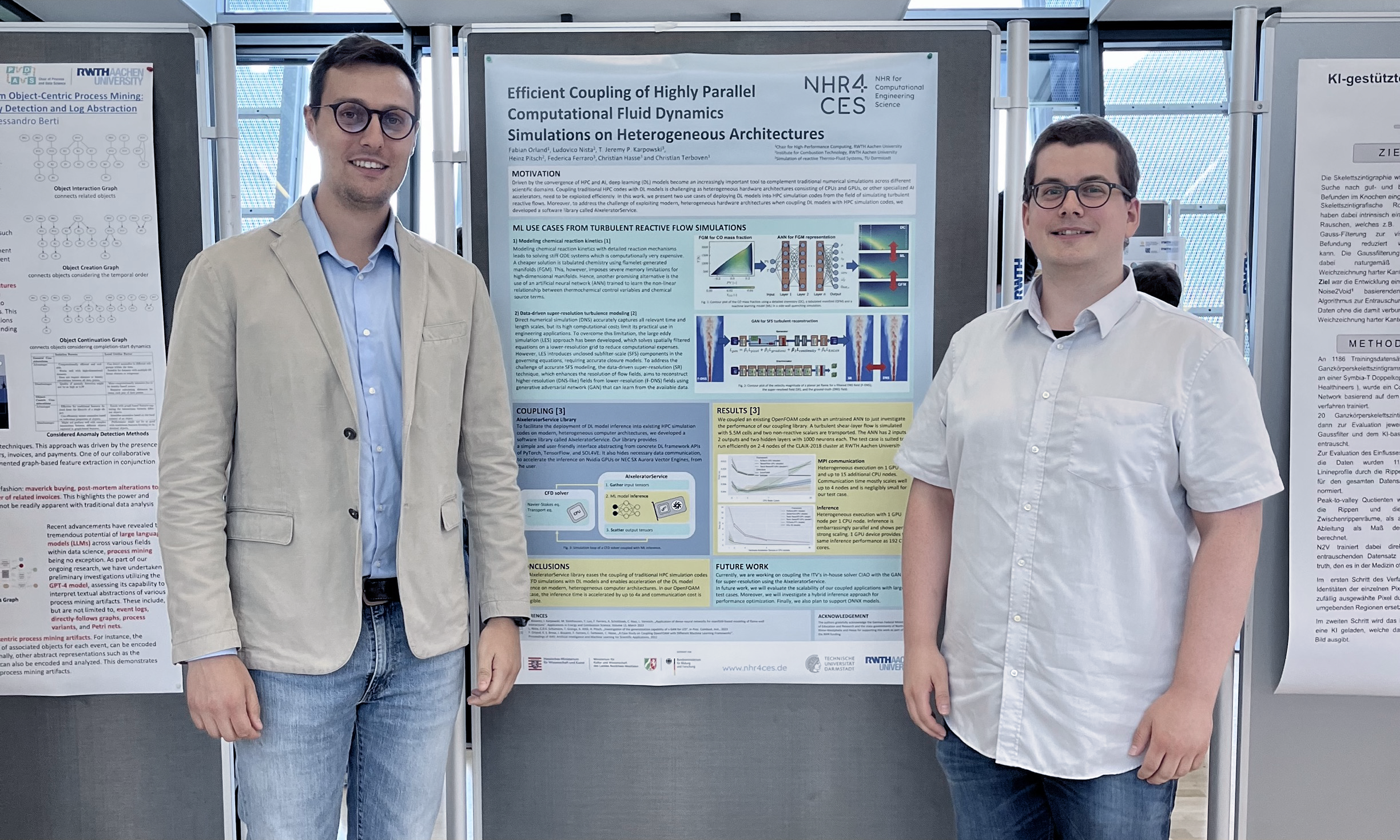Collaboration between our CSG Parallelism and Performance and SDL Energy Conversion: Representing their groups, Fabian Orland and Ludovico Nista presented the work “Efficient Coupling of Highly Parallel Computational Fluid Dynamics Simulations on Heterogeneous Architectures“ at the 2023 Artificial Intelligence Colloquium at RWTH Aachen University.
Driven by the convergence of HPC and AI, deep learning (DL) models become an increasingly important tool to complement traditional numerical simulations across different domain sciences. Coupling of traditional HPC codes and DL models is challenging as heterogeneous hardware architectures consisting of CPUs and GPUs, or other specialized AI accelerators, need to be exploited efficiently. In this work, they presented two use cases of deploying DL models into HPC simulation codes from the field of simulating turbulent reactive flows.
First, detailed chemistry calculations lead to solving stiff ODE systems that are computationally very expensive to solve. A cheaper alternative is tabulated chemistry using flamelet-generated manifolds. This imposes severe memory limitations though. A promising alternative is an artificial neural network that learns the non-linear relationship between thermochemical control variables and chemical source terms.
Second, the large eddy simulation formalism introduces a low-pass filter resulting in unclosed non-linear advection terms in the governing Navier-Stokes equations. To close these terms subgrid-scale models are required, for which DL models are investigated as alternatives to algebraic models.
To facilitate the deployment of such models into existing HPC simulation codes on modern, heterogeneous computer architectures, we developed a software library, called AIxeleratorService. This library provides an API abstracting from concrete machine learning framework APIs and hiding data communication between CPUs and GPUs to accelerate the DL model inference in a heterogeneous job.
In future work, the CSG Parallelism and Performance and SDL Energy Conversion will apply the coupling approach to investigate different use cases with different ML models. They will evaluate the scalability of the coupling library with large scale use cases and further optimize the performance of the coupling library.
The presented use cases from the SDL Energy Conversion are of high relevance for the research of future low-carbon and carbon-free energy conversion technologies. Simulations of real-scale combustion devices requires HPC resources and support provided by NHR4CES.
